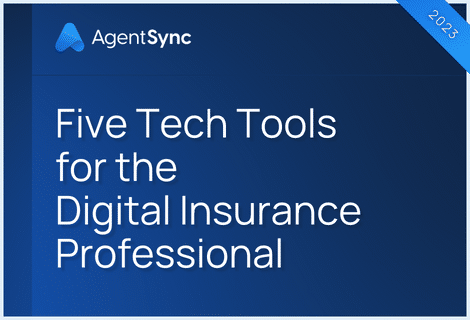

Following one state’s licensing rules, isn’t following them all
Keeping track of state-by-state licensing requirements can be an absolute pain for insurance companies and agents. Logically, it would make sense to follow the requirements for the state with the most rules. Or the strictest rules? Or the ones with the most regulatory actions? That way, you can be sure you’ve covered all of your bases for the states with fewer rules, right?
Wrong.
State-by-state regulatory requirements aren’t a matter of more or less. One state doesn’t implement every single rule while another forgoes all of them. Instead, states have a lot of freedom to create their own regulatory requirements according to their own specifications.
For instance, not all states require fingerprinting for agent licensing, but some do (for the purpose of background checks). Insurance agents in Florida need to get a fingerprint via Florida’s exclusive fingerprinting vendor, IdentoGo. But insurance agents in California need to get their fingerprints taken from California’s vendor, Accurate Biometrics. This is a very simple example of when meeting one state’s requirements might seem like it translates to another, but it doesn’t!
Why do states do this?
State-by-state licensing rules aren’t a conspiracy to make licensing managers’ lives harder. Though, that often is the case. With the expansion of remote work capabilities, managing state-by-state licensure requirements for any employee – but particularly out-of-state employees – is a lot of work.
This state regulatory framework was established in the 19th century, so it isn’t like state rules are a new concept in the industry – although that doesn’t make them any easier to comply with. But these rules aren’t arbitrary. Since states have different insurance needs, state-specific regulators were historically best suited to establish regulatory requirements in the interest of both the insurance companies and consumers based within their state.

To put it simply, insurance used to be a very local – or at most regional – business, and insurance companies and agencies didn’t have to worry about what was happening in another state. These days, it’s hard to imagine a company that doesn’t want to conduct business over state lines. But just because technology and quick transportation have made the lines between different states feel blurry doesn’t mean insurance regulations feel the same.
With state rules changing by the day, some insurance agencies may be tempted to just pick one state and run with it. But with compliance, ignorance is not bliss. Just ask any of the insurance companies who’ve been saddled with regulatory actions. It’s important to know when state rules change, how they change, and whether those changes will impact you or your employees, at the risk of facing hefty fines with non-compliance.
While industry associations are working to simplify and unify state-by-state rules, unique state requirements aren’t going anywhere anytime soon. So for those companies debating whether complying with one state’s regulatory requirements is sufficient, the answer is: it’s not.
The failure to comply with state-by-state regulatory requirements can result in steep regulatory penalties, including license suspension or revocation and fines.
What are these state-by-state rules of the insurance industry?
State rules encompass areas of the insurance industry, including “company licensing, producer licensing, product regulation, market conduct, financial regulation, and consumer services.” But for the purposes of this article, we’ll focus specifically on company licensing and producer licensing.
Company licensing
Agencies, carriers, and MGAs/MGUs need to be properly licensed to sell insurance. These insurers and insurance companies need to be licensed in both the state they’re domiciled and the states they sell business. So, if a Colorado-based company sells insurance policies in California, they need to be properly licensed in both Colorado AND California. And yes, you guessed it, each state has its own licensing rules.
Producer licensing
Just like with companies, if you’re an individual and you sell insurance – whether as an agent, producer, or broker – you need to be properly licensed in every state where you write business. Again, if you’re a producer based in Colorado and you write business in California, you need to be properly licensed in both states. Additionally, licensure requirements may change depending on whether you’re a resident or nonresident in a given state.
The fault for non-compliance lies with all parties involved. Incorrectly licensed agents may face regulatory actions, but so do the insurance companies they work with. If you’re an insurance agency, you should make sure your producers are properly licensed across every state they write business in.
Complying with state rules doesn’t need to be so hard
The state regulatory system is important, particularly when it comes to building consumer trust. So insurance companies should support it by staying on top of state-by-state regulatory requirements.
Sure, a few years ago, complying with state-by-state licensing rules was tough to manage. It involved tracking each state’s website, updating spreadsheets, communicating changes to employees, and hoping to avoid human error as much as possible. But that isn’t the case anymore. We have the tools to make this process very simple.
At AgentSync, we make sure customers are up to date with the state licensing rules that impact them and their agents. We do the work here so that our customers can focus on what’s important: helping people get the insurance policies they need to live their best lives.
Check out our demo to learn more about how AgentSync helps customers manage state-by-state compliance.

